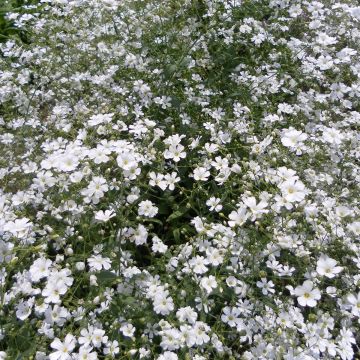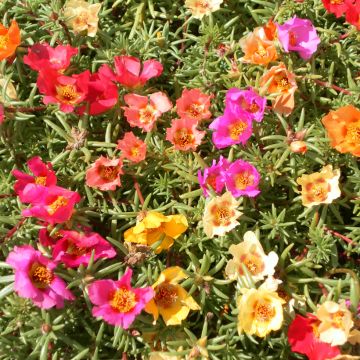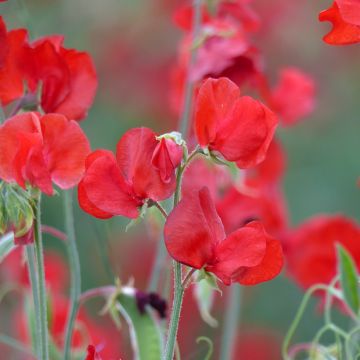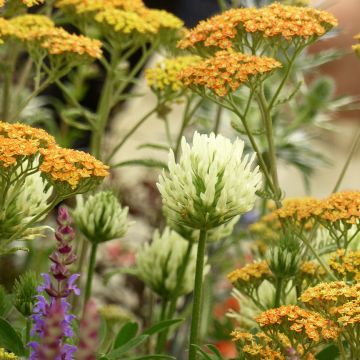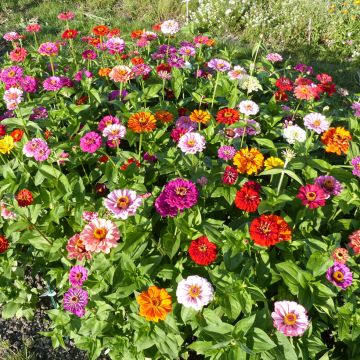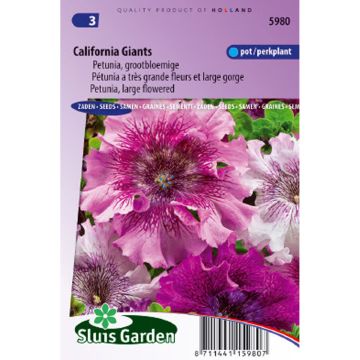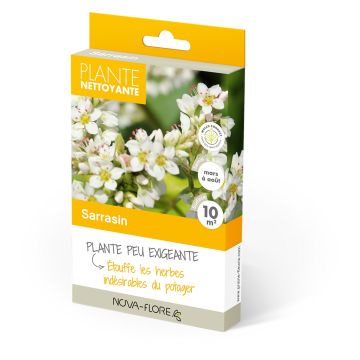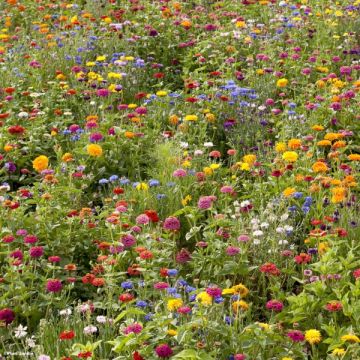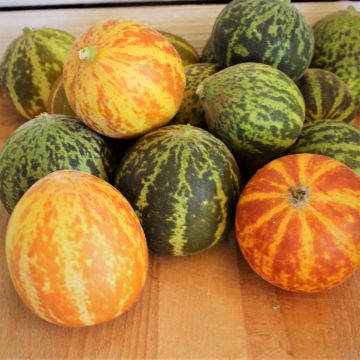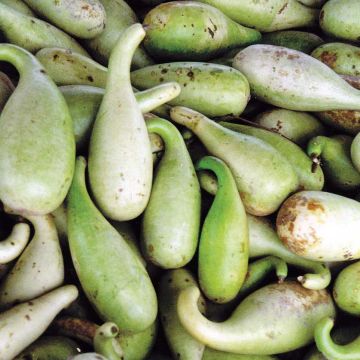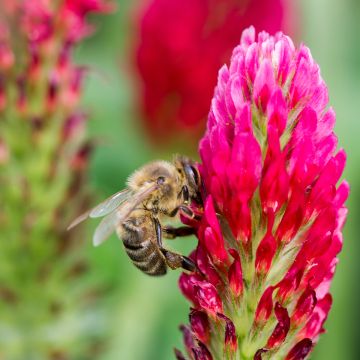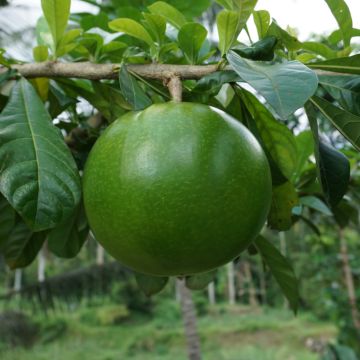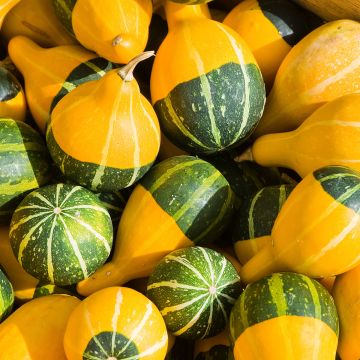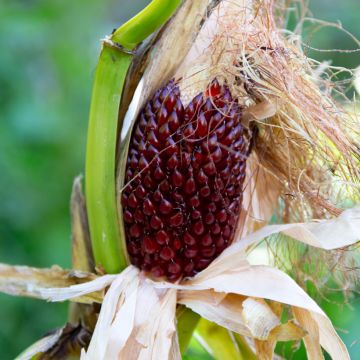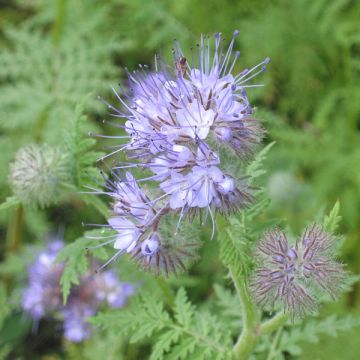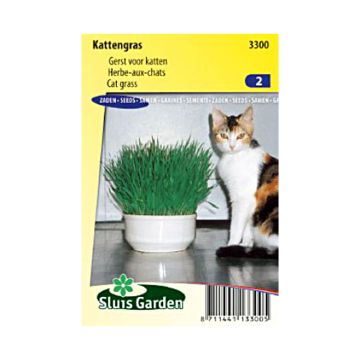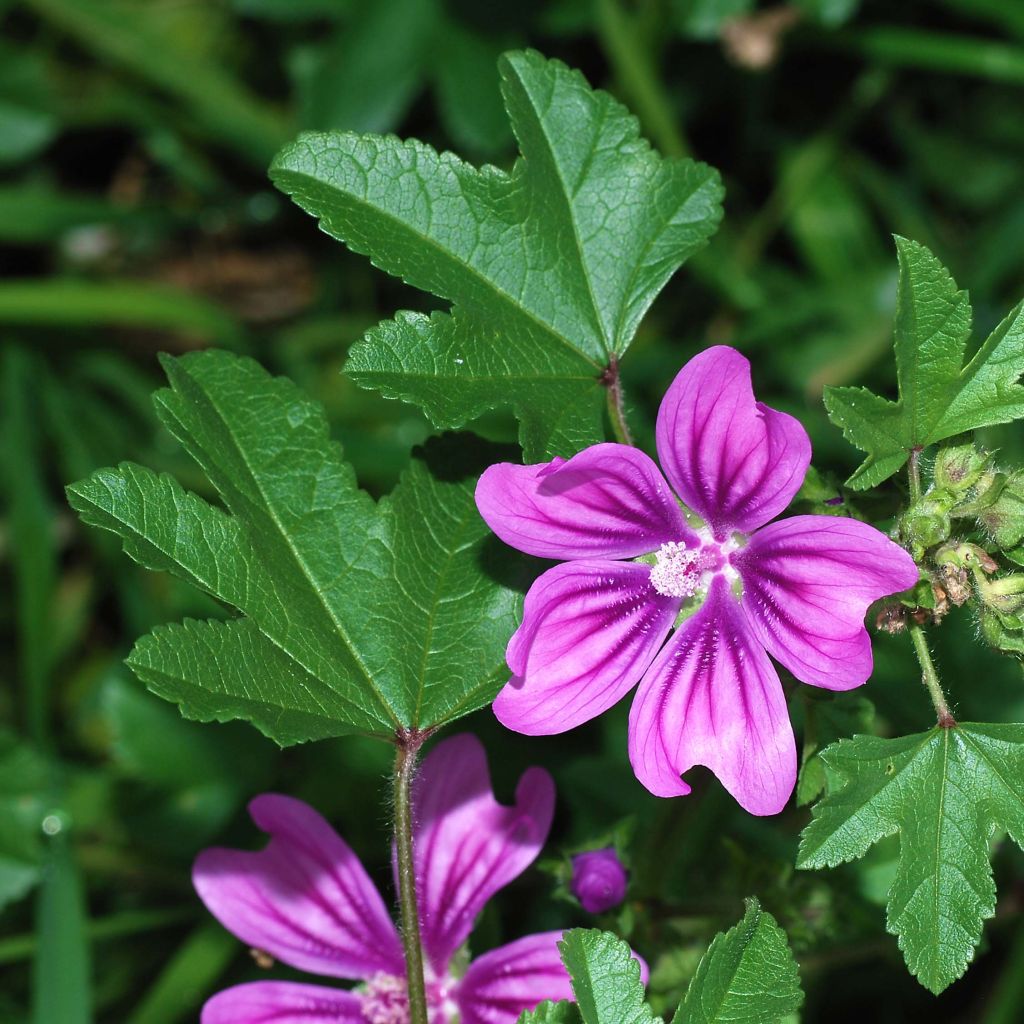

Mauve - Malva sylvestris
Malva sylvestris
Malva sylvestris
Common Mallow, High Mallow, Tall Mallow, Blue Mallow, Cheeses
Just been sown...
Godefroy D., 09/03/2021
This item cannot be shipped to the selected country
Dispatch by letter from €3.90
More information
Schedule delivery date,
and select date in basket
This plant carries a 6 months recovery warranty
More information
We guarantee the quality of our plants for a full growing cycle, and will replace at our expense any plant that fails to recover under normal climatic and planting conditions.
Seed-only orders are dispatched by sealed envelope. The delivery charge for seed-only orders is €3.90.
Description
Mallow or Malva sylvestris is a beautiful perennial plant, with a wild and natural appearance. Standing over a metre tall, it bears lovely pink flowers on sturdy stems, emerging from dark foliage reminiscent of ivy. It is an easy plant to sow and cultivate (in partial shade or in the sun) that offers a magnificent display throughout the summer, starting from the first year of cultivation. It is hardy, tolerates almost all types of soil, and can withstand drought. As a perennial, it behaves more like a biennial and readily self-seeds.
Malva sylvestris is a medicinal plant native to sunny fallow lands and woodlands in Europe, Asia, and North Africa. It belongs to the mallow family, like marshmallow (Althea officinalis) used by pharmacists. In spring, it quickly forms a clump of large, heart-shaped to rounded leaves, slightly lobed and serrated, in a beautiful dark green colour. The flowering occurs from June to September depending on the sowing date and attracts pollinating insects.
The wood mallow is ideal for natural areas, on large slopes, or in cottage gardens alongside hollyhocks, hybrid mulleins, or tall thistles.
The common mallow of our countryside is also an edible plant. Its young leaves are consumed as a vegetable in Morocco, just like spinach, prepared with lemon juice. It is a delicious dish and useful for promoting intestinal transit. This plant is also known for soothing burns and digestive disorders. In Mediterranean cuisines, it is also used raw in salads. Nowadays, they are used in the preparation of soothing balms.
Report an error about the product description
Harvest
Plant habit
Foliage
Botanical data
Malva
sylvestris
Malvaceae
Common Mallow, High Mallow, Tall Mallow, Blue Mallow, Cheeses
Cultivar or hybrid
Biennial
Other Flower seeds A to Z
Planting and care
Sow the seeds of Mallow from late winter to early spring by burying them deep in a rich soil. Make sure the soil is moist but not waterlogged and seal them in a polyethylene bag until germination, which usually takes 15 to 21 days at 21°C (69.8°F). Transplant when the plants are large enough to handle into 8cm (3in) pots. Let them grow in cooler conditions, then plant them in open ground in a not too rich soil, in full sun, spaced at least 40cm (16in) apart.
Like all other species of the genus, this mauve can be subject to rust, which is more unsightly than truly dangerous to the plant. It is the humid conditions that promote the appearance of the disease. Close to Lavateras, this small 'bush' is however a little less hardy. It is preferable to prune it back every spring as you would for the latter. If you grow this plant in a soil that is too rich in organic matter, it will tend to lay its stems down and a support may be necessary.
Seedlings
Care
Intended location
-
, onOrder confirmed
Reply from on Promesse de fleurs
Flower seeds
Haven't found what you were looking for?
Hardiness is the lowest winter temperature a plant can endure without suffering serious damage or even dying. However, hardiness is affected by location (a sheltered area, such as a patio), protection (winter cover) and soil type (hardiness is improved by well-drained soil).

Photo Sharing Terms & Conditions
In order to encourage gardeners to interact and share their experiences, Promesse de fleurs offers various media enabling content to be uploaded onto its Site - in particular via the ‘Photo sharing’ module.
The User agrees to refrain from:
- Posting any content that is illegal, prejudicial, insulting, racist, inciteful to hatred, revisionist, contrary to public decency, that infringes on privacy or on the privacy rights of third parties, in particular the publicity rights of persons and goods, intellectual property rights, or the right to privacy.
- Submitting content on behalf of a third party;
- Impersonate the identity of a third party and/or publish any personal information about a third party;
In general, the User undertakes to refrain from any unethical behaviour.
All Content (in particular text, comments, files, images, photos, videos, creative works, etc.), which may be subject to property or intellectual property rights, image or other private rights, shall remain the property of the User, subject to the limited rights granted by the terms of the licence granted by Promesse de fleurs as stated below. Users are at liberty to publish or not to publish such Content on the Site, notably via the ‘Photo Sharing’ facility, and accept that this Content shall be made public and freely accessible, notably on the Internet.
Users further acknowledge, undertake to have ,and guarantee that they hold all necessary rights and permissions to publish such material on the Site, in particular with regard to the legislation in force pertaining to any privacy, property, intellectual property, image, or contractual rights, or rights of any other nature. By publishing such Content on the Site, Users acknowledge accepting full liability as publishers of the Content within the meaning of the law, and grant Promesse de fleurs, free of charge, an inclusive, worldwide licence for the said Content for the entire duration of its publication, including all reproduction, representation, up/downloading, displaying, performing, transmission, and storage rights.
Users also grant permission for their name to be linked to the Content and accept that this link may not always be made available.
By engaging in posting material, Users consent to their Content becoming automatically accessible on the Internet, in particular on other sites and/or blogs and/or web pages of the Promesse de fleurs site, including in particular social pages and the Promesse de fleurs catalogue.
Users may secure the removal of entrusted content free of charge by issuing a simple request via our contact form.
The flowering period indicated on our website applies to countries and regions located in USDA zone 8 (France, the United Kingdom, Ireland, the Netherlands, etc.)
It will vary according to where you live:
- In zones 9 to 10 (Italy, Spain, Greece, etc.), flowering will occur about 2 to 4 weeks earlier.
- In zones 6 to 7 (Germany, Poland, Slovenia, and lower mountainous regions), flowering will be delayed by 2 to 3 weeks.
- In zone 5 (Central Europe, Scandinavia), blooming will be delayed by 3 to 5 weeks.
In temperate climates, pruning of spring-flowering shrubs (forsythia, spireas, etc.) should be done just after flowering.
Pruning of summer-flowering shrubs (Indian Lilac, Perovskia, etc.) can be done in winter or spring.
In cold regions as well as with frost-sensitive plants, avoid pruning too early when severe frosts may still occur.
The planting period indicated on our website applies to countries and regions located in USDA zone 8 (France, United Kingdom, Ireland, Netherlands).
It will vary according to where you live:
- In Mediterranean zones (Marseille, Madrid, Milan, etc.), autumn and winter are the best planting periods.
- In continental zones (Strasbourg, Munich, Vienna, etc.), delay planting by 2 to 3 weeks in spring and bring it forward by 2 to 4 weeks in autumn.
- In mountainous regions (the Alps, Pyrenees, Carpathians, etc.), it is best to plant in late spring (May-June) or late summer (August-September).
The harvesting period indicated on our website applies to countries and regions in USDA zone 8 (France, England, Ireland, the Netherlands).
In colder areas (Scandinavia, Poland, Austria...) fruit and vegetable harvests are likely to be delayed by 3-4 weeks.
In warmer areas (Italy, Spain, Greece, etc.), harvesting will probably take place earlier, depending on weather conditions.
The sowing periods indicated on our website apply to countries and regions within USDA Zone 8 (France, UK, Ireland, Netherlands).
In colder areas (Scandinavia, Poland, Austria...), delay any outdoor sowing by 3-4 weeks, or sow under glass.
In warmer climes (Italy, Spain, Greece, etc.), bring outdoor sowing forward by a few weeks.

































